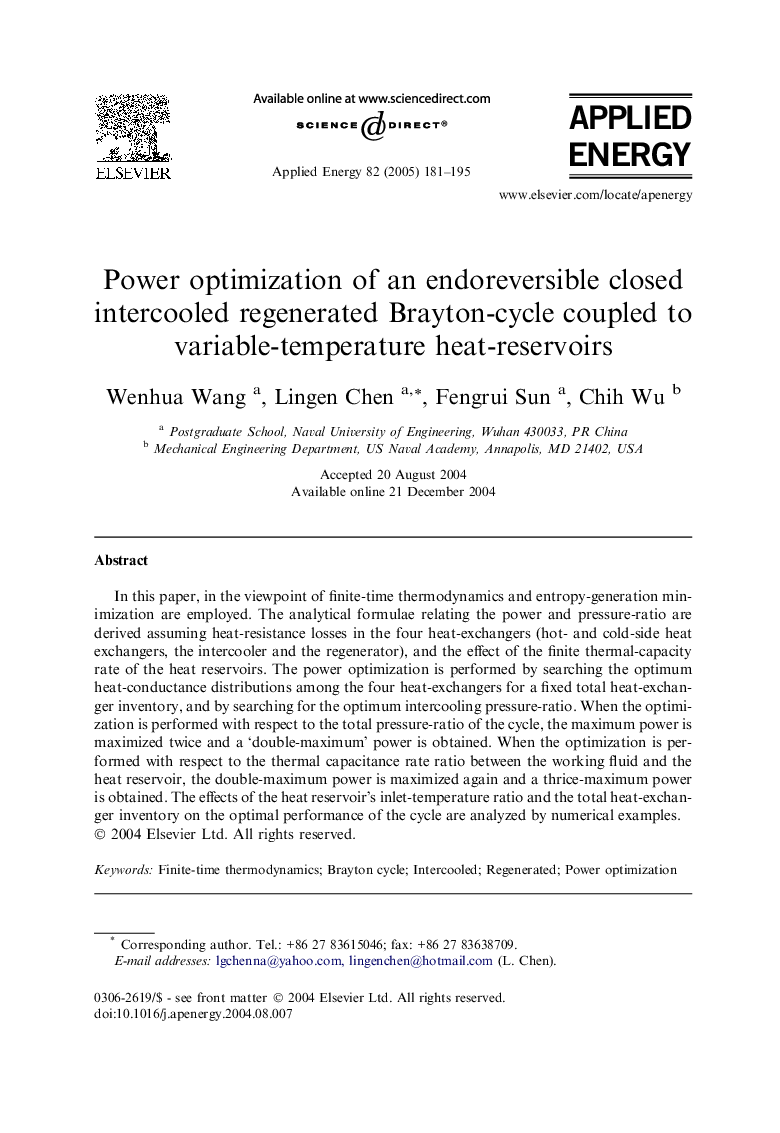| Article ID | Journal | Published Year | Pages | File Type |
|---|---|---|---|---|
| 10282208 | Applied Energy | 2005 | 15 Pages |
Abstract
In this paper, in the viewpoint of finite-time thermodynamics and entropy-generation minimization are employed. The analytical formulae relating the power and pressure-ratio are derived assuming heat-resistance losses in the four heat-exchangers (hot- and cold-side heat exchangers, the intercooler and the regenerator), and the effect of the finite thermal-capacity rate of the heat reservoirs. The power optimization is performed by searching the optimum heat-conductance distributions among the four heat-exchangers for a fixed total heat-exchanger inventory, and by searching for the optimum intercooling pressure-ratio. When the optimization is performed with respect to the total pressure-ratio of the cycle, the maximum power is maximized twice and a 'double-maximum' power is obtained. When the optimization is performed with respect to the thermal capacitance rate ratio between the working fluid and the heat reservoir, the double-maximum power is maximized again and a thrice-maximum power is obtained. The effects of the heat reservoir's inlet-temperature ratio and the total heat-exchanger inventory on the optimal performance of the cycle are analyzed by numerical examples.
Related Topics
Physical Sciences and Engineering
Energy
Energy Engineering and Power Technology
Authors
Wenhua Wang, Lingen Chen, Fengrui Sun, Chih Wu,
